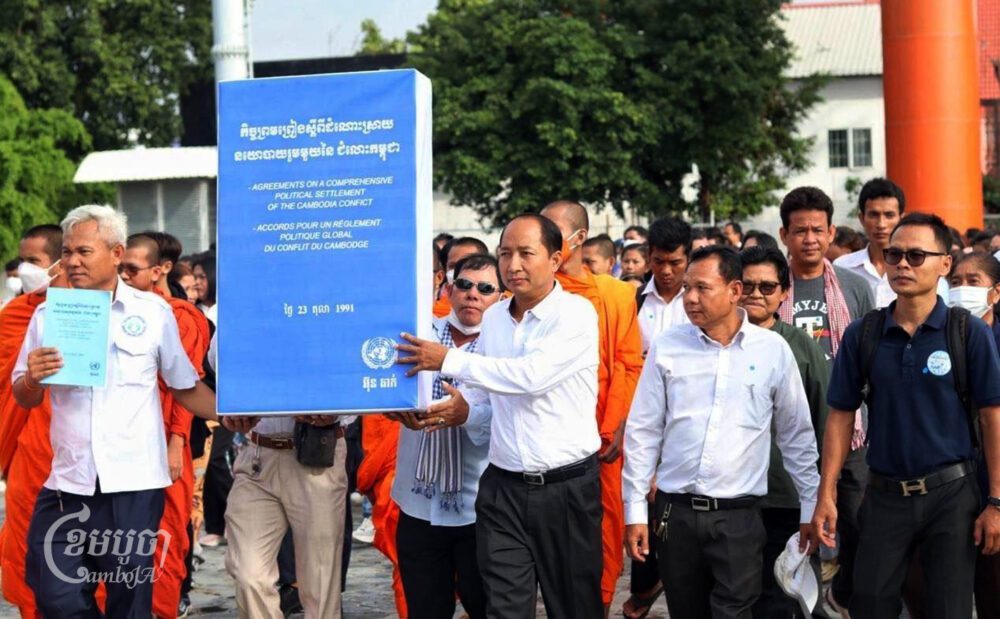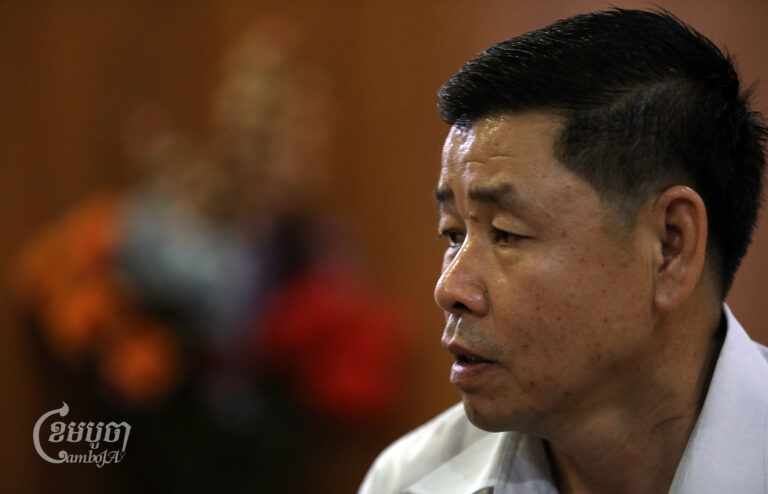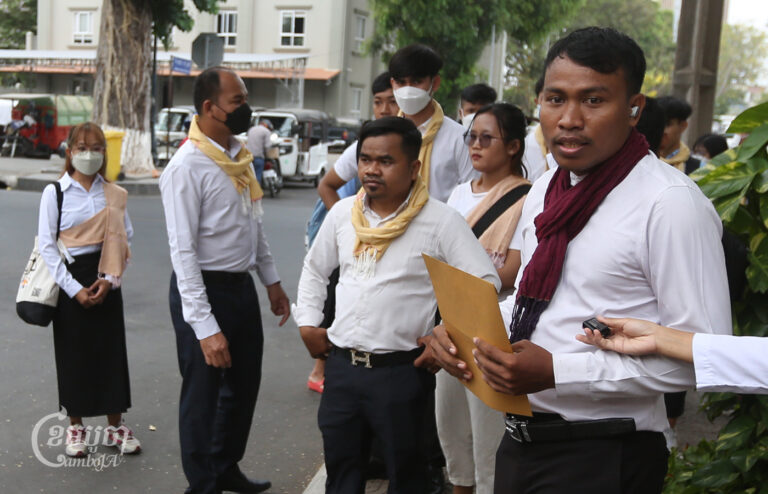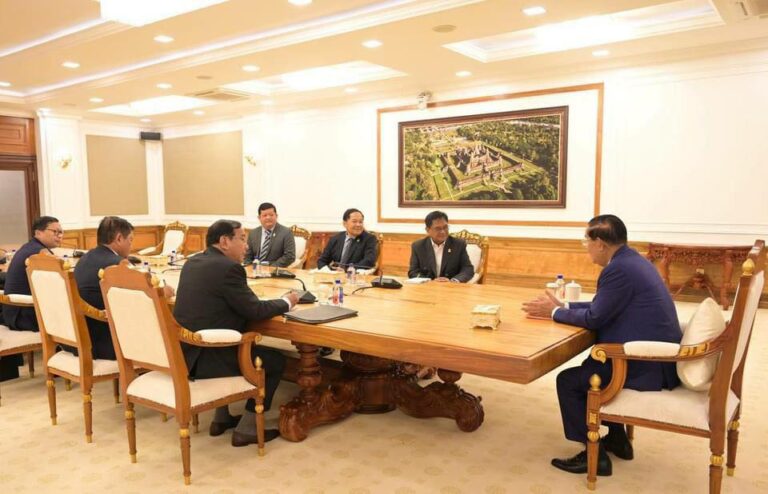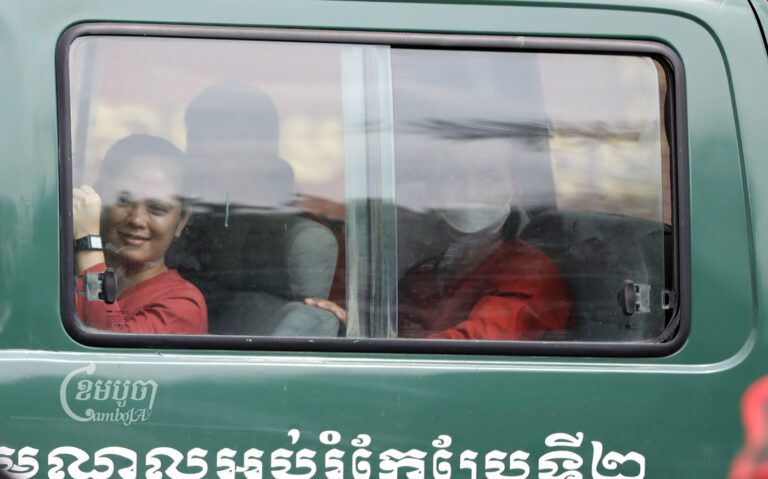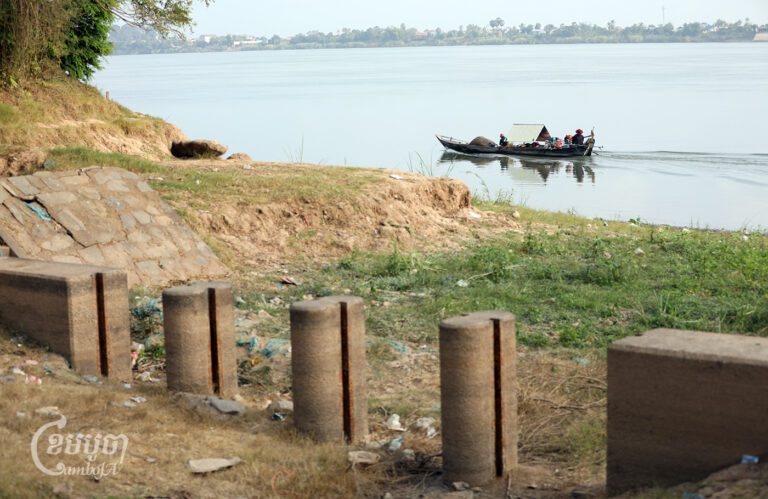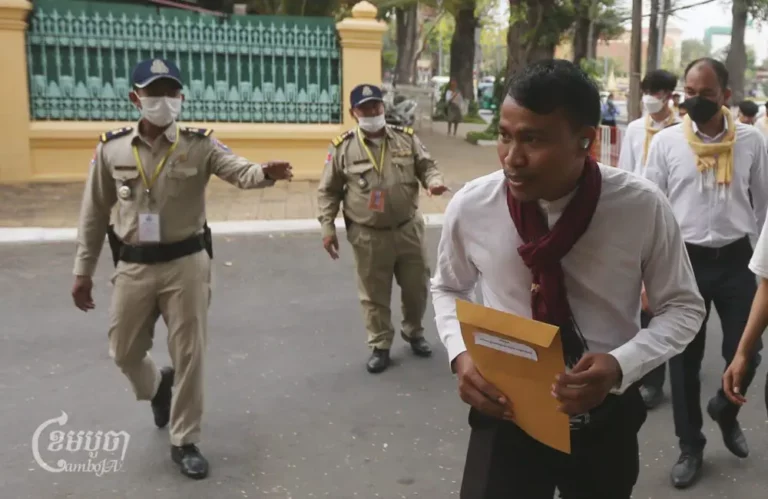NGOs and political parties have called on the 18 signatories of the Paris Peace Agreements and Cambodian government to “restore democracy and respect human rights”.
Some 1,000 civil society and union members, and environmental activists participated in the 32nd anniversary of the Paris Peace Agreements at Freedom Park in Russey Keo district, Phnom Penh on October 22.
During the event, Ny Sokha, president of NGO rights group Adhoc said the government has to yet uphold the spirit of democracy and fundamental principles of the peace accords, signed in 1991.
“We are all very concerned about the decline of human rights and the democratic process in Cambodia following the dissolution of the country’s main opposition party in 2017.
“We notice that fundamental rights, which support the building process of a liberal, multiparty democracy, have been subjected to constant intimidation and repression,” Sokha said.
He said authorities have been prosecuting and detaining human rights defenders, land and environmental activists, unions, as well as political activists. Restrictions on the freedom of expression, closure of independent media outlets and crackdowns on workers’ protests have also become rampant.
He asked that the signatories, including the UN, continue supporting the agreements while urging the government to uphold the principles contained within them.
Srun Sron, a proponent of the Paris Peace Agreements, said his group, which has over 100 people, would conduct a campaign in Battambang and discuss with Cambodians living overseas regarding the treaty via social media.
The campaign is aimed at educating citizens and officials to uphold the rule of law as well as understand the Cambodian constitution and the contents of the Paris Peace Agreements.
“The agreements are the soul of the Khmer nation, which paved the way to Cambodia’s independence, sovereignty and integrity,” he said. “The Cambodian government of the seventh mandate has yet to show its willingness to abide by the agreements as they claim to follow the Constitution, born out of the agreement,” Srorn said.
The Paris Peace Agreements were signed on October 23, 1991, in Paris by 18 governments and the UN, which saw the establishment of the UN’s Traditional Authority in Cambodia. This set the groundwork for the country’s first national election in 1993 and the adoption of the Cambodian Constitution.
The signatories to the agreement promised to promote and respect human rights and the fundamental freedoms in Cambodia, as well as comply with a liberal democratic political system.
Government spokesperson Pen Bona said the government has fully implemented the Paris Peace Agreements, particularly the right to freedom of expression and political rights, which are guaranteed by the constitution.
“No person can use those rights to violate another person’s right to cultural traditions, public order and national security,” he said.
He pointed out that Article 41 of the Constitution states that Khmer citizens possess freedom of expression, press freedom, and freedom of publication and assembly.
“If everyone conducts themselves this way, our country would have no problem with the right to freedom of expression. Nowadays there are some issues [freedom of expression] owing to the violation of people’s rights, law breaking and public disorder,” Bona said.
“If we want [that sort of] freedom, it might be a problem,” he said.
Regarding civil societies’ call for the release of activists, Bona said the government cannot interfere in court decisions. “The government has no power to interfere in the courts whether to release these persons or [any other] persons.”
Bona said former Prime Minister Hun Sen had liberated the country, with January 7 being recognized as victory day. At the time, the late king Norodom Sihanouk and Hun Sen initiated a dialogue on the Paris Peace Agreements, which brought about peace and development in Cambodia.
International communities have demanded for the restoration of democracy and human rights, which have slid back down since the dissolution of the Cambodian National Rescue Party (CNRP) by the Supreme Court in 2017. The court ruled that CNRP was allegedly attempting to overthrow the government. Its leader Kem Sokha was cited for treason and sentenced to 27 years in jail. He was also issued a lifetime ban from taking part in politics.
On Monday, Hun Sen said the civil war, started by Democratic Kampuchea during Pol Pot’s regime, carried on, despite the Paris Peace Agreements.
“The civil war ended in 1998 with Cambodia [gaining] peace and has remained prosperous till today,” he said via his official Telegram channel.
Meanwhile, political analyst Meas Nee echoed other activists in saying that the government has not fully implemented what was stipulated in the agreements, which is meant to bring peace to Cambodia.
“It has backtracked on democracy and not respected human rights. For me, this agreement is still significant,” Meas said.
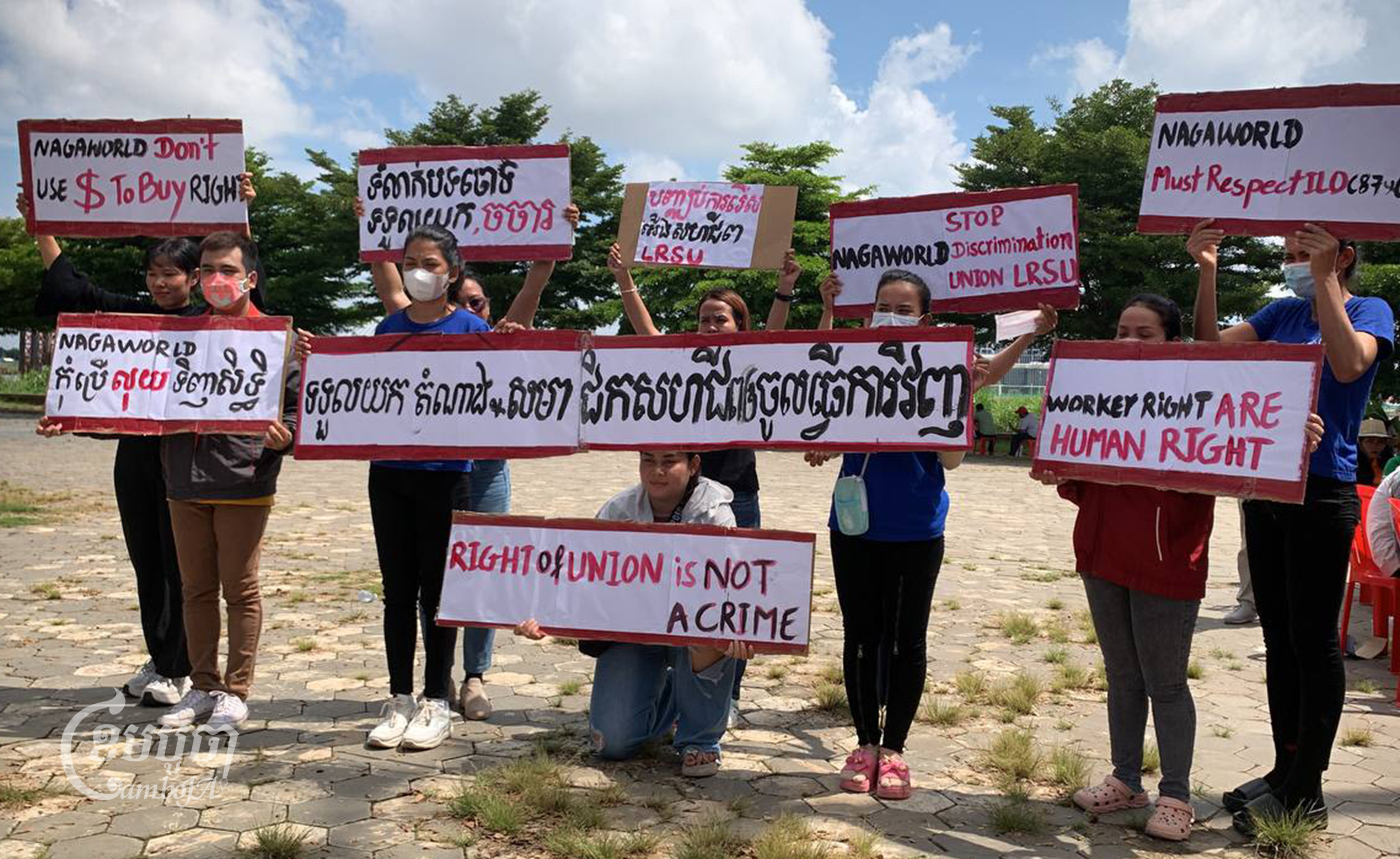
The Alliance Towards the Future, consisting of Candlelight, Cambodian Reform Party, Grassroots Democratic Party and Khmer Will Party, said 32 years later, significant principles have not been respected or implemented.
In a joint statement on Monday, the coalition said the principles include national unity, respecting human rights, multiple-party democracy and independence of the courts.
It called on signatory countries to compel the government to fully implement them in order to restore democracy and human rights in the country.
Vice president of Cambodia Reform Party Ou Chanrath said the principles in the agreements are valid and valuable although the government claimed that they have been invalidated with the enactment of the Cambodian Constitution.
“Even the meanings [of the wordings in the agreements] are stipulated in the constitution but the government has yet to sufficiently meet them, [particularly those] related to democracy, human rights and social justice,” he said. “Our territorial sovereignty is also unresolved, seeing that several people have been imprisoned after [raising] border issues,” Chanrath said.
He also noticed that Cambodia “lacks national unity,” in which the current government allegedly takes the side of China, although it should also consider the views of western countries of restoring democracy and human rights.
Kim Chhorn, executive director of the Committee for Free and Fair Elections in Cambodia (Comfrel), said the current situation seems contrary to the spirit of the Paris agreement where there is “only detention and imprisonment” of political activists, social activists and civilians.
In fact, he opined, the National Election Commission is not made up of all parties, resulting in some form of bias.
“For 32 years now, this agreement has not been implemented in accordance with the election or the principles set out in 1991.
“The current election law or political party law do not protect the will of voters as yet. Should we demand that these laws be amended?” he said.
Ruling CPP spokesperson Sok Eysan could not be reached for comment.
Signatory countries such as the United States, Australia and Japan responded to questions via email, stating their support in strengthening pluralism, party democracy and respect for human rights.
The US supports all efforts to recall the achievement and principles of the 1991 Paris Peace Agreements and encourages their full implementation, its spokesperson said.
“As a signatory of the agreements, the US continues to stand with the Cambodian people and other signatories to reaffirm inclusive, multi-party democracy and respect for human rights,” the spokesperson added.


